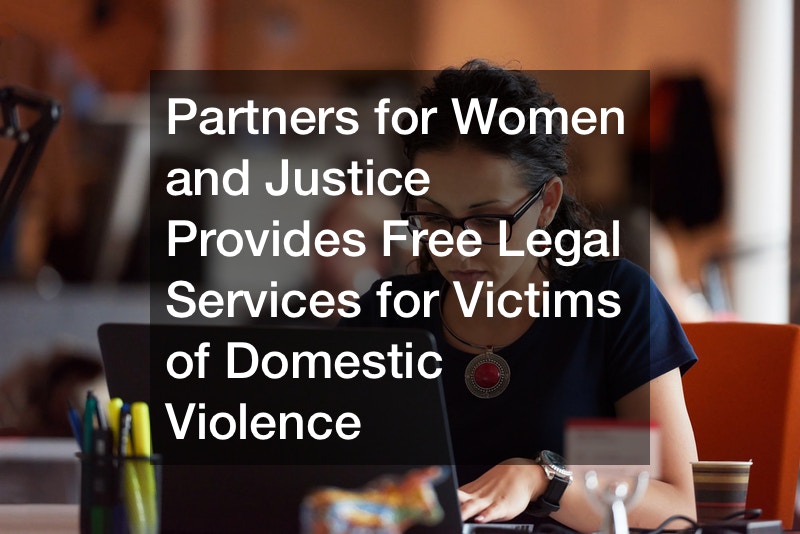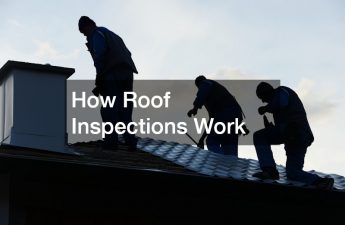
Partners for Women and Justice is an organization giving free legal services to victims of domestic violence. The types of cases that Partners for Women and Justice handle include domestic violence final restraining orders (FROs), sexual assault final protective orders (FPOs), modifications of FROs and FPOs, issues relating to safe visitation, custody relocation, and custody. Although Partners for Women and Justice handles cases relating to relationships, divorce and child abuse are not included.
How Partners for Women and Justice Can Help You
The legal counsel at Partners for Women and Justice can help by first meeting with you for a “know your rights” conference. They have legal advocates who can give legal advice to the victims who chose to represent themselves in court. They also have family law attorneys willing to provide free legal services for victims of domestic violence. However, these free legal services are only available in the following counties:
- Essex
- Hudson
- Middlesex
- Passaic
- Union
Who Partners for Women and Justice can Assist

The legal advocates at Partners for Women and Justice can help victims of domestic or sexual abuse. If you have a case pending in the Family Court of New Jersey, they can also help you. Additionally, you must meet the income guidelines. These have been determined by the New Jersey HUD income median amounts.
Contact Partners for Women and Justice to find out if you qualify for their free legal services for victims of domestic violence. They never discriminate based on gender, sexual orientation, gender identity or expression, race, color, religion, national origin, age, or disability.
Domestic Violence and Covid-19
>Despite attempts made by many government agencies, cases of domestic violence are on the rise since COVID-19. The impact of the pandemic on domestic violence is partly due to job loss creating financial hardships. The fiscal brunt of COVID-19 included loss of jobs, housing, and a lack of kids care. All the factors increase the hazards for violence in the home, particularly, among people of color. In addition, because of these pandemic-related financial hardships, the ability to leave their abuser became severely limited.
Due to COVID-19, the abusing partner has been enabled to hold power over their victim in much more prevalent ways. With the lockdown in effect, the abuser had complete control over their victim. They were able to isolate and intimidate their partner and use controlling maneuvers such as threats and coercion in a whole new way. There have been a number of indicators of domestic violence being on the rise. These include 911 calls to police departments and calls to crisis hotlines.
In response to this increase due to COVID-19, states like New Jersey have been reacting quickly by providing critical resources. These resources are for the survivors as well as the agencies that provide assistance to them. These agencies have swiveled their agendas quickly and evenly in order to provide these survivors with remote services. They had to rearrange the systems for sheltering these victims and survivors safely to meet the CDC’s guidelines. Even still, all of this work is in need of a great deal more support in order to meet their long-term needs.
How Lawmakers and the Government Can Help

During the COVID-19 pandemic, lawmakers and government officials have been doing whatever they can to prevent domestic violence. Some of the actions taken during the COVID-19 pandemic include:
- Allocating fiscal resources aimed at making apartments more affordable to meet the long-term needs of survivors.
- Administering monetary reinforcement in an effort to encourage the survivors and their kids to seek treatment for mental health needs. This also includes services to meet each of the diverse cultural and linguistic needs.
- Advancing the transparency of reported data relating to domestic violence. This includes examining how this data is collected and ensuring it is reviewed in a timely manner to allow for changes in policy and practices.
- Seeking new policies which will address the current economic structure and inequalities of race.
- Making changes to those policies which seem to contribute to the domestic violence problem.
How the Impact of COVID-19 Intensifies Domestic Violence
The coronavirus isn’t the only live virus affecting the population during the COVID-19 pandemic. Domestic violence has been burgeoning because of the circumstances the pandemic has created. In the first quarter of 2020 hotlines at domestic violence centers phones were the same as in 2019. Yet, when the first stay-at-home orders were lifted the calls were explosive. Domestic violence reports to law enforcement increased by about 50% during the first three quarters of 2020. Domestic violence is characterized as the shade of a pandemic. In the way how low-income and other disparaged members of the population appear to be affected the most adversely by it.
Intimate relationships have been stressed most by the COVID-19 pandemic. Exacerbating behavior that is abusive and decreasing any fiscally possible resources a survivor might have to escape with.
The government and lawmakers alike have four areas to take action. These areas are essential to advocating the safety of the victims and their children. This is imperative should the pandemic have a second wave. Domestic violence victims are facing severe consequences of COVID-19, financially and otherwise. The pandemic has permitted abusive people to victimize their partners, exerting new and more powerful ways to control them. In New Jersey, data indicate the rate of domestic violence, and its severity is increasing significantly. The needs of domestic violence victims are being responded to at the federal, state, and social service levels.
New Jersey is providing critical fiscal support, as domestic violence agencies continue to provide aid during COVID-19. However, all of this aid is proving insufficient in meeting the challenges that survivors face. Some of these challenges include a shortfall of affordable housing while we search for ways the survivors can escape their abusers.
Domestic violence is also known as violence toward an intimate partner. This is described as a series of actions that one partner uses to maintain control and power over the other person in the relationship. These behaviors may be physical, emotional, mental, and financial.
When we hear of a domestic violence situation often we think of a heterosexual couple being involved. Yet, this form of violence affects people of all gender identities. One thing is for certain, women are most commonly the victim.
How to Know if You are in Need of Help

Domestic violence isn’t always as obvious as you might think. There are several signs that indicate a form of domestic violence is occurring. This section is about how to know if you are in need of help. Is your intimate partner guilty of the following activities?
- Accusing you of disloyalty or cheating on him/her?
- Cause you to have feelings of worthlessness?
- Harm you by restraining, slapping, shaking, kicking, or choking you?
- Threaten of intimidating you or a person you love?
- Tell you if you don’t do what they ask you to do their will to do grave harm to themselves?
- Controlling of whom you visit and what you do?
- Force themselves on you–pressuring you to have sex?
- Controlling how much money you have access to?
If any of the above activities makes you feel that your life is in danger (or the life of your kids) call 911.
The mission of Partners for Women and Justice is to empower victims and survivors of domestic violence who are low-income. They want to help create a secure and safe future for these survivors and their children. We do so by providing family law attorneys, employment services, and health & medical services. We do this because we offer free legal services for these victims and survivors. In the matter of family law and domestic violence, it is imperative that a person receives quality legal assistance.
How Partners for Women and Justice is Able to Help
The attorneys that work for Partners are available to give free legal counsel to domestic violence victims that are low-income. These attorneys provide assistance with cases including hearings for final restraining orders and any domestic violence-related issues like child custody, child support, visitation, and relocating the victim out of New Jersey.
Partners for Women and Justice are advocates acting on behalf of all survivors and victims of domestic abuse. They advocate for the methodical enhancements to the judiciary system as well as advancements to laws applying to domestic violence. They offer free legal services for victims of domestic violence. This is done by providing them with a child custody attorney or sexual harassment lawyer free of cost.
Goals and Strategies
Partners for Women and Justice provides free legal services for victims of domestic violence has the following goals and strategies.
- To formulate an avenue towards advocating and transmitting the systemic issues facing victims of domestic violence.
- To strengthen and extend the capacity of their staff.
- Giving enhancement to employee retention and job satisfaction.
- Creating a plan of Executive Succession.
- To harness the potential of the Board as being an acceptable source of monetary access.
- Advanced personal and organizational sharing with an emphasis on funds that are unrestricted.
- The development of a donor-centered plan for communications.
Partners for Women and Justice has been successfully representing victims of domestic abuse in two counties. They started out by representing low-income, domestic violence victims in Essex and Union counties. They now offer assistance over the phone for legal advice. Their legal counsel will represent you at the court hearing in Essex, Hudson, Middlesex, Passaic, and Union counties.
How You Can Get Involved

Many of the clients who come to Partners are low-income and cannot pay for an attorney. This is when the need for a commodities lawyer comes to play. A commodities lawyer is a legal professional who provides legal services for a high-priced commodity. That commodity, in the case of domestic violence survivors, is legal advice. If you are a lawyer, one way you can get involved is to donate your time.
Often times, a survivor who calls Partners for help is working. Their salary puts them over the poverty limit which qualifies them for government-funded services. Yet, these people barely make enough money to pay the bills and put food on the table, let alone pay an expensive lawyer.
There aren’t any provisions available in our legal system for people who cannot afford an attorney. If Partners didn’t have free legal services for victims of domestic violence, they would go to court without an attorney. These victims would be forced to show up in family court alone. Devoid of legal advice or knowledge of the rights they have under the law.
Financial problems are the main reason why victims remain victims and never successfully leave to become survivors. They are normally dependent on their abuser or they have children and don’t want to split up the family.
The lawyers working with Partners for Women and Justice aids clients in obtaining orders of protection. These pro bono attorneys also aid in getting the survivor a fair award for child support. In addition, this attorney helps with custody and safe visitation arrangements. What is most important, the commodities lawyer working for Partners helps to empower each of our survivors. Helping them find the power within themselves to take control over their own lives. Asserting control and fighting back at their abuser by taking the right steps to protect themselves and their children.



